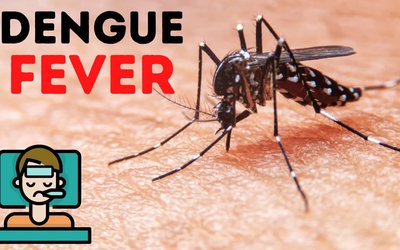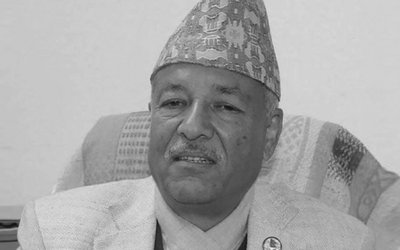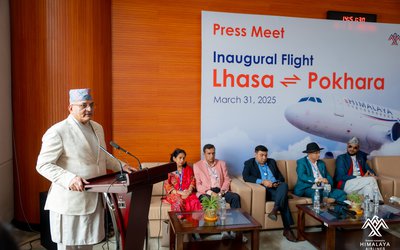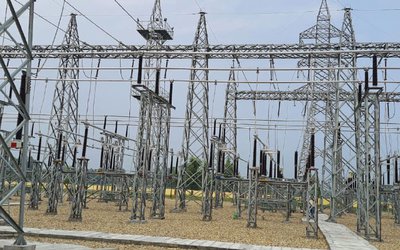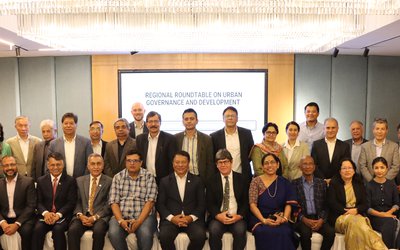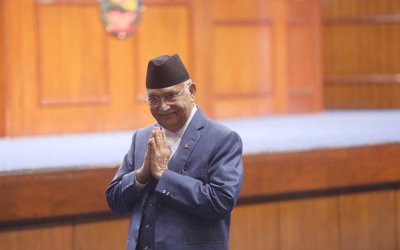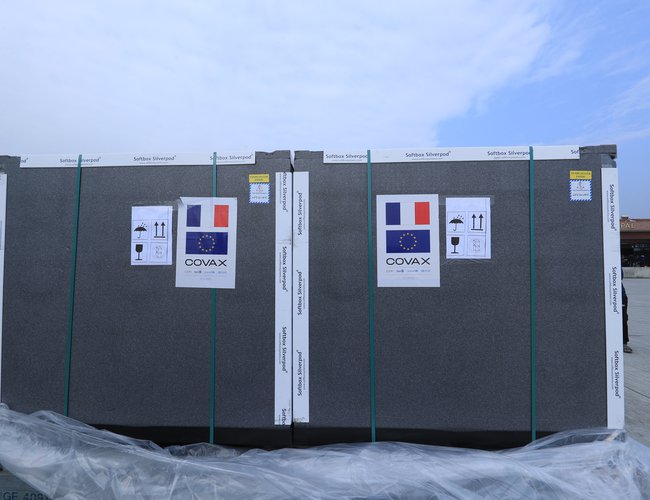
The Government of France has just delivered 702,720 doses of Pfizer-BioNTech's bivalent COVID-19 vaccines to Nepal through the COVAX Facility, offering a boost to the country’s ongoing COVID-19 vaccination drive. This latest donation had been divided into separate shipments received across the months of June and July, with the final installment of the donation having arrived at the Tribhuvan International Airport in Kathmandu today.
France had been the first country worldwide to donate vaccines to the COVAX mechanism when global COVID-19 vaccination efforts began in early 2021. In the years since, France has remained one of the top donors to COVAX, a testament to the Government’s commitment to support vaccine coverage worldwide, especially in vulnerable countries hit hard by the pandemic.
On this occasion, French Ambassador to Nepal, Mr. Gilles Bourbao, reiterated one of France’s key positions: Working with partners in multilateral platforms to address global issues, the COVID-19 crisis being no exception.
France had previously donated 685,400 doses of the AstraZeneca COVID-19 vaccines to Nepal through COVAX in 2022, and more recently, 195,840 of the Pfizer-BioNTech’s bi-valent vaccines as part of a joint Team Europe donation in April 2023.
While Nepal currently sees relatively low numbers of daily new COVID-19 infections, the Government of Nepal is still running the vaccination programme, given the continued need to protect communities. This is particularly crucial for vulnerable populations such as those with compromised immunity, existing health issues and comorbidities, the elderly, and pregnant women, among others.
"On behalf of the COVAX partners, UNICEF extends gratitude to the Government of France for the latest donation of COVID-19 vaccines to Nepal,” said Ms. Alice Akunga, UNICEF Representative to Nepal. “This contribution is testament to the critical role of global solidarity and partnership in the fight against COVID-19, and in ensuring a safer, healthier future for all.”
The COVAX Facility is part of the ACT-Accelerator, and brings together several key partners such as Gavi, the Vaccine Alliance, WHO and UNICEF to ensure efficient and equitable global allocation of COVID-19 vaccines.
- RPP Lawmaker Bohara Passes Away
- Apr 01, 2025
- Himalaya Starts Lhasa-Pokhara-Lhasa Scheduled Service
- Apr 01, 2025
- India Starts Exporting Additional 600 MW Electricity To Nepal
- Apr 01, 2025
- Regional Roundtable on Urban Governance and Development Concludes
- Apr 01, 2025
- PM Oli Is Leaving Thailand To Pay Official Visit T And Take Party In BIMSTEC Summit
- Apr 01, 2025





